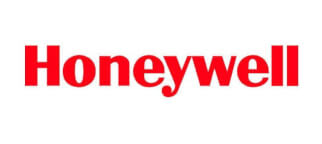Best Access Control Brand Reviews
Looking to buy access control? Read reviews of the best brands.

Alarms | ||
Cloud camera integration | ||
Cloud-based | ||
Data export | ||
Direct support | ||
Directory integrations | ||
Lockdown feature | ||
Native mobile access | ||
Public API | ||
Remote unlocks | ||
SAML SSO-enabled |
Company Overview
Honeywell is a massive corporation that produces hundreds of different products, including access control hardware. It’s a major company for a reason, and businesses and consumers have been trusting its offerings for years. It is one of the most popular access control solutions providers in the country. Like many other access control manufacturers on this list, Honeywell is active in the most common physical security markets, including airports, banking, education, commercial offices, finance, gaming, government, health care and industrial facilities.
Honeywell has a leg up when it comes to access control because of its long, international history as a global provider of security products. The panel-based system and generic door controllers make it compatible with scores of security products and accessories on the market. This makes the system versatile in the office environment, but decreases system security due to the piecemeal approach
Honeywell Hardware
Honeywell manufactures the following hardware and software, which can be used on their own or as part of a larger system:
Major Features
As a business-grade access control system, Honeywell offers most of the standard functions customers should expect, including monitoring alarms and events in real-time, special response messages per account or per alarm, locking and unlocking doors, and adding and removing holidays. There can be up to 99 priority levels of alarms and events, and users can control and respond to these with actions like acknowledging and clearing them. There is also the option to add live video and recorded video, plus manual override, shunt and bypass zones, live floor plan views and card audit trails. In other words, Honeywell is powerful.
Door panels are installed locally and require Honeywell’s WIN-PAK access control system to manage credentials and generate reports. Honeywell offers readers that can authenticate keypad credentials, barcodes, key cards, and biometric fingerprints. Like all panel-based systems, readers must be wired back to the panel to function. Honeywell access control panels can control up to 32 doors in the facility.
Because of Honeywell’s expansive security offering, the system pairs nicely with alarms, fire safety, video surveillance systems, and much more. The system is flexible and scalable, and comes from a trusted name in the industry. The downfall lies in the fact that support for the product is non-existent and relies on the knowledge of local vendors and their experience. Additionally, Honeywell does not offer a mobile app for unlocking doors through mobile credentials.
Advantages of Honeywell
Disadvantages of Honeywell
As many other access control manufacturers on this list, Honeywell is active in the most common physical security markets. These include industries like airports and travel, banking, education and campuses, commercial offices, retail, government, health care and hospitals, houses of worship and industrial facilities. In essence, there are few places that could not use Honeywell products — or any access control system, for that matter. The uses vary by industry, but the practice itself helps to promote much higher standards of physical security in any facility.
If you want to work with a company that is more singularly invested in access control or offers a bit more customization, Honeywell might not be the right choice for your facility. As the market evolves, access control should too, and Kisi is a company that can provide state-of-the-art access control designed specifically for your business.
For more general information you can take a look at our article on access control system installation costs. If you are looking for an alternative to Honeywell, discover how Kisi works.
Best Access Control Brand Reviews
Looking to buy access control? Read reviews of the best brands.
Enable cookies to help us improve your experience.
We use cookies to enchance your experience and for marketing purposes. By clicking ‘accept’, you agree to this use.